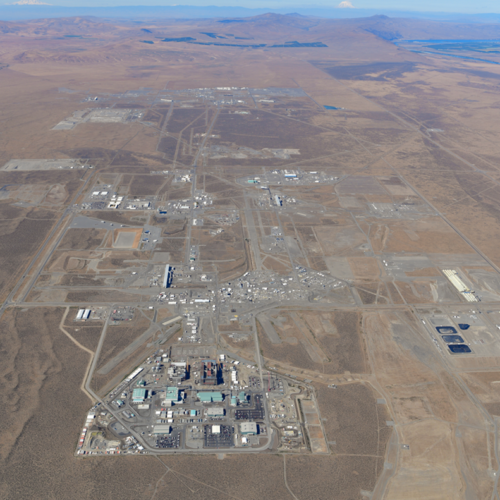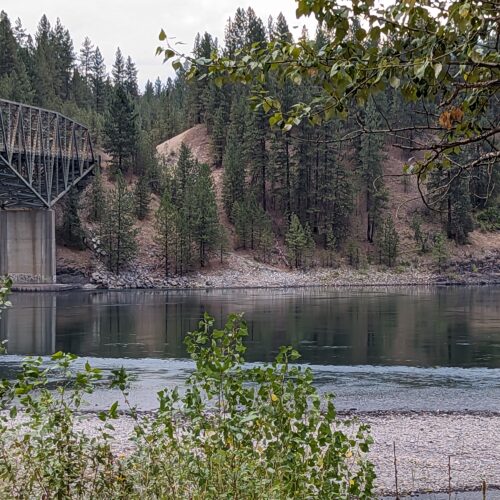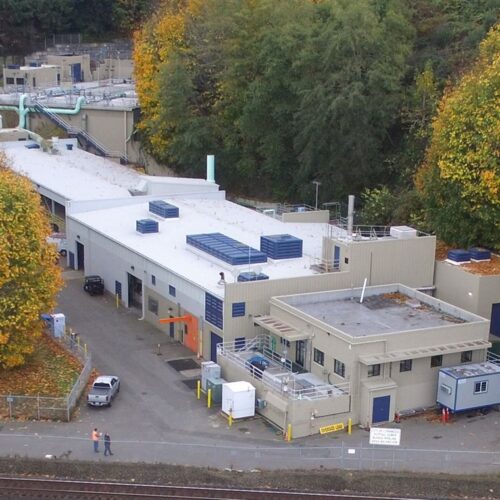
Trump Administration Finalizes Plan To Repeal Obama-era Water Protections
READ ON
The Trump administration is finalizing plans to repeal an Obama-era water protections rule.
This comes as the Environmental Protection Agency’s Administrator Andrew Wheeler signed the repeal Thursday of the Waters of the United States rule — the first step in a two-step rule making process.
“Today, EPA and the Department of the Army finalized a rule to repeal the previous administration’s overreach in the federal regulation of U.S. waters and recodify the longstanding and familiar regulatory text that previously existed,” EPA’s Administrator Andrew Wheeler said in a statement, referring to his own agency and the U.S. Army Corps of Engineers.
The next step allows the Trump administration to finalize a new definition for which bodies of water deserve federal protection by the end of the year.
Environmental advocates said removing regulations could potentially increase pollution in certain waters, while the agricultural industry praised the move as correcting an earlier overreach in regulation.
Columbia Riverkeeper’s Executive Director Brett VandenHeuvel said Trump’s attempt to lessen regulations are heading in the wrong direction.
“The Clean Water Act is a core part of our of nations laws to protect clean water. Its been in place since 1972. It’s done a lot of good and it’s extremely popular with the American public, we want clean water,” VandenHeuvel said.
In 2015, then-President Barack Obama signed the Waters of the United States rule to clarify governmental authority to regulate smaller tributaries and wetlands, but the rule never went into effect— as it was challenged in a multi-state lawsuit led by then-state Attorney General for Oklahoma Scott Pruitt, before he went on to be Trump’s first EPA administrator.
“This is not the end of this unfortunate and disastrous journey, this is just a midway point,” Center for Biological Diversity’s Government Affairs Director Brett Hartl said. “So even if the consequences to the Northwest are not severe right now, in six months we’re looking at massive losses of wetland protections.”
Environmental advocates plan to file lawsuits to fight back against the repeal.
But not all are against the changes, as the Oregon Farm Bureau applauded the repeal and replacements of the Water of the United States rule.
The Oregon Farm Bureau issued a statement saying the state already has strong water quality and fill-and-removal regulations. The rule proposed by the previous administration would not add anything and it would only give litigious environmental groups the ability to bring citizen suits against farmers who are already working to improve and protect water quality.
With this final repeal, the agencies will implement the pre-2015 regulations, which are currently in place in more than half of the states, informed by applicable agency guidance documents and consistent with Supreme Court decisions and longstanding agency practice.
The final rule takes effect 60 days after publication in the Federal Register.
Copyright 2019 Oregon Public Broadcasting. To see more, visit opb.org
Related Stories:

After years of negotiations, new government Hanford plan stirs up plans to treat radioactive waste
A 2021 aerial photo of Hanford’s 200 Area, which houses the tanks and under-construction Waste Treatment Plant, in southeast Washington. (Credit: U.S. Department of Energy) Listen (Runtime 1:01) Read There

EPA Proposes adding portions of 150 mile stretch of upper Columbia River to the Superfund list
The Northport Bridge over the Columbia River in Washington state near the border with Canada. Portions of the upper Columbia River and its upland areas may be designated a Superfund

City of Lynnwood pays $550k fine to EPA for Clean Air Act violations
Processing sewage — it’s a dirty job for any city. One way governments choose to process that waste is through incineration. However, the process of burning that waste has to adhere to strict standards, including the Environmental Protection Agency’s Clean Air Act.
An aging incinerator the City of Lynnwood uses to process waste has become less efficient and beginning in 2020, fell out of compliance with those standards. Now, the city has paid a $550, 259 penalty to the EPA and will have to decommission the incinerator to comply with the standards.
















